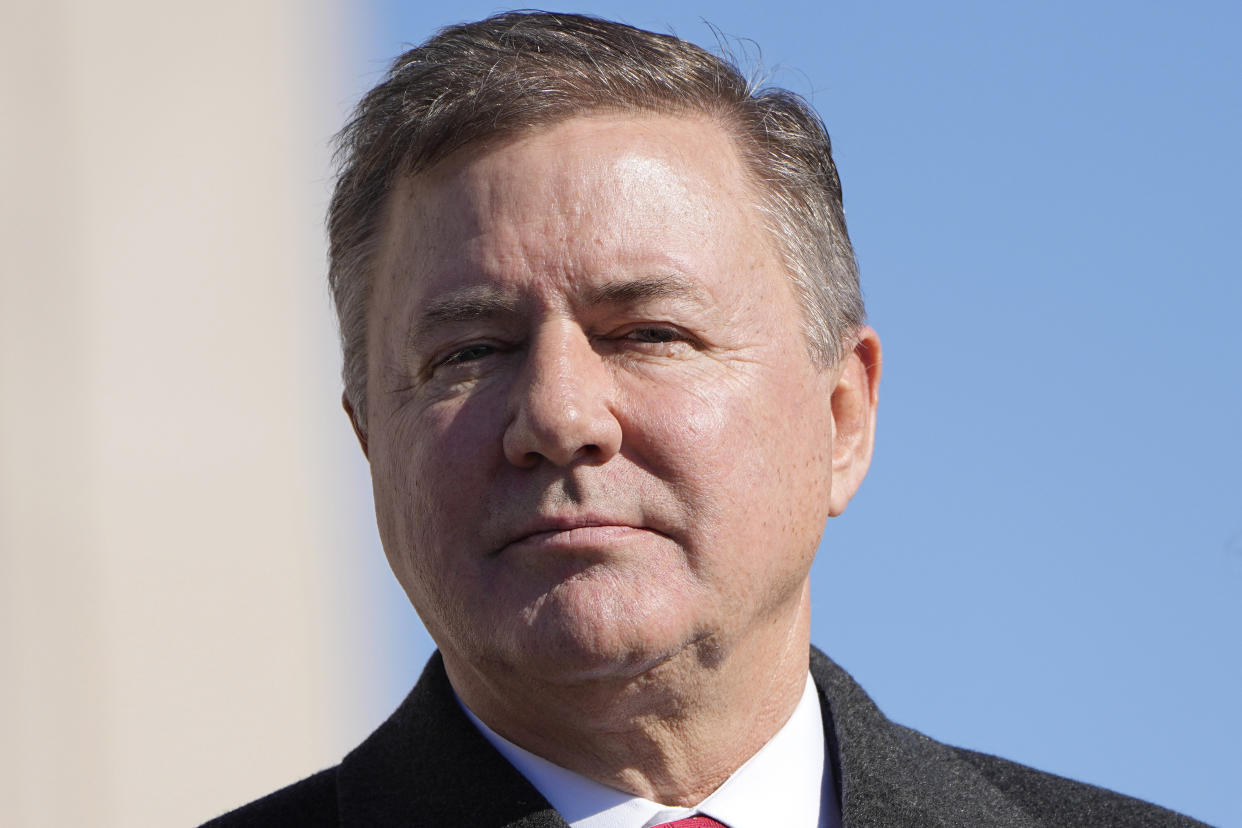Oklahoma court considers whether to allow the US' first publicly funded Catholic school

- Oops!Something went wrong.Please try again later.
- Oops!Something went wrong.Please try again later.
OKLAHOMA CITY (AP) — Oklahoma’s Republican attorney general urged the state’s highest court on Tuesday to stop the creation of what would be the nation’s first publicly funded Catholic charter school.
Attorney General Gentner Drummond argued the Oklahoma Statewide Virtual Charter School Board violated both the law and the state and federal constitutions when it voted 3-2 in June to approve the Catholic Archdiocese of Oklahoma City's application to establish the St. Isidore of Seville Catholic Virtual Charter School.
“I think that they betrayed their oath of office,” Drummond told the nine-member court. “And they knew they betrayed their oath of office because I told them if they did that they would.”
The case is being closely watched because supporters of the school believe recent U.S. Supreme Court decisions have indicated the court is more open to public funds going to religious entities.
One of Oklahoma's high court justices asked Drummond if there aren't already examples of using taxpayer funds for religious purposes, such as Medicaid funding for patients who go to St. Anthony's Hospital, a Catholic health care provider in Oklahoma City.
Drummond said there is a distinct difference between a religious entity qualifying for state funding for a service it provides and the Catholic charter school, which became a public institution with the school board's vote.
“The state and church are intertwined as has never happened before,” Drummond said. He added that approving the school would open the door for public schools to teach Islamic doctrine or even Satanism.
Michael McGinley, an attorney for St. Isidore, argued that numerous private religious organizations receive state funding for providing services to students and that it's unconstitutional to reject the archdiocese's application simply because it is religious.
“We have a program that's open to everybody, except religious organizations,” he argued. “You can't do that.”
McGinley said the online school already has received hundreds of applications and hopes to receive its state funding on July 1. Classes are scheduled to begin in the fall. The school would be open to students throughout Oklahoma in kindergarten through grade 12.
The court did not indicate when it would rule.

